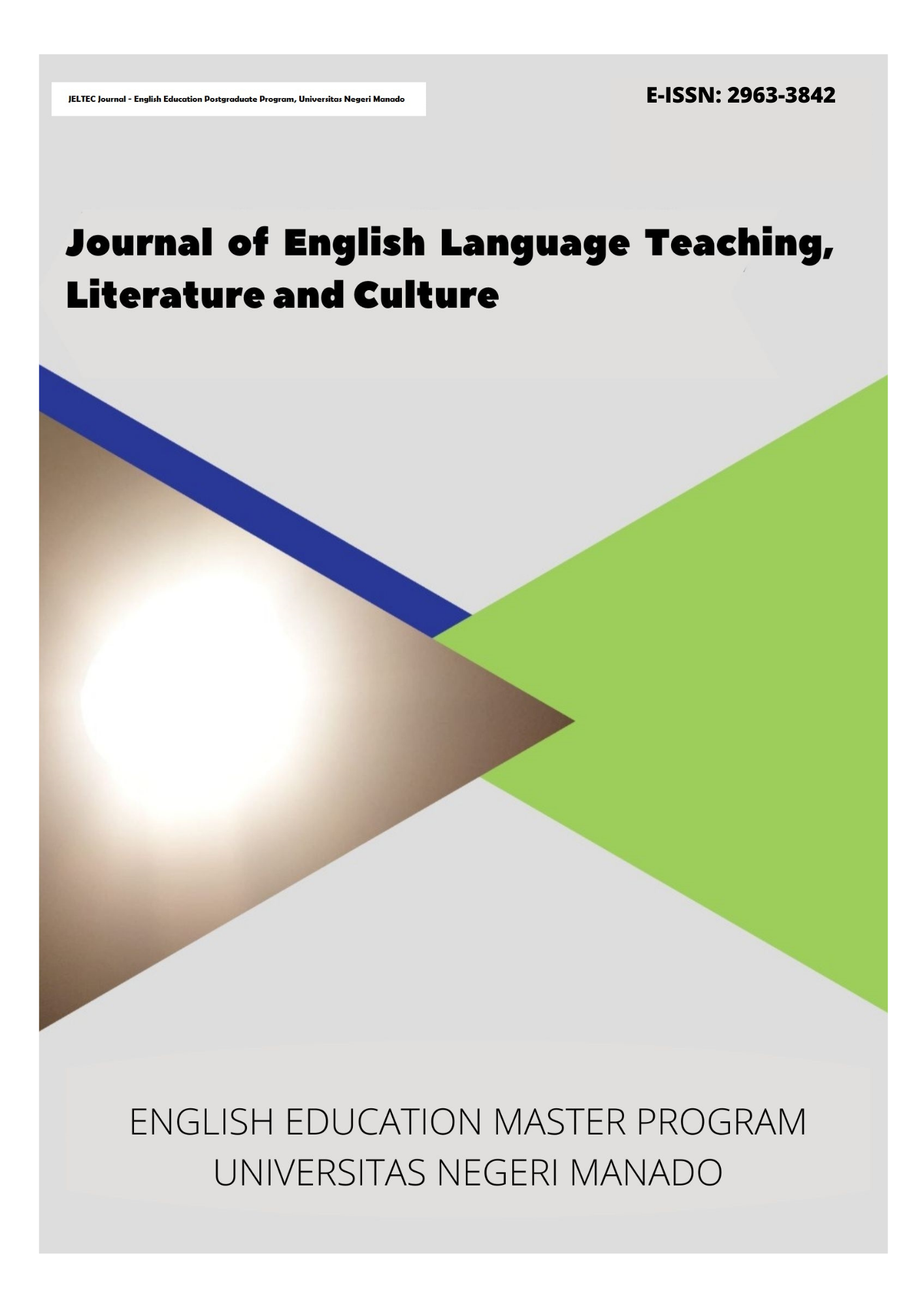The Role of English in Merchant Marine: The Main Course or Supplemantary Course?
DOI:
https://doi.org/10.53682/jeltec.v4i1.11899Keywords:
Maritime English; ESP; Language Needs; Global CommunicationAbstract
This study explores the perceived role of English in maritime education at the Merchant Marine Polytechnic of Barombong specifically questioning whether Maritime English is treated as a core or supplementary subject Employing a quantitative approach data were collected through a structured questionnaire administered to 100 cadets The findings reveal a strong consensus among cadets regarding the importance of English in enhancing communication skills building professional confidence and supporting future career opportunities in the global maritime industry Despite this Maritime English remains marginalized within the curriculum often taught separately from technical subjects and allocated minimal instructional time The study identifies a significant gap between cadets linguistic needs and the current pedagogical approach The results also align with similar local research in Indonesia indicating a national trend of underemphasizing Maritime English in seafaring education This research concludes with a recommendation to reposition Maritime English as a main course integrated into practical and technical maritime training to better prepare cadets for international standards and global work environments < em>< p>
References
Arifin M 2021 English confidence in maritime simulations: A case at PIP Makassar Journal of Maritime Education 9 2 88 97
Fitriani A Hamzah F 2022 Task based Maritime English and cadet confidence at Poltekpel Barombong Jurnal Pendidikan Bahasa Inggris Terapan 7 1 60 70
Hakim R Putra R H 2020 The role of Maritime English in improving seafarers communication skills: A study at Poltekpel Malahayati Aceh Jurnal Pendidikan Maritim dan Kelautan 8 2 112 124
Indrayani L Hidayat D N 2021 Evaluating the implementation of Maritime English program at Poltekpel Banten Journal of Maritime English 7 1 45 54
Liando N V F Tatipang D P 2022 English or Indonesian language? Parents perception toward children s second language learning context Jurnal Lingua Idea 13 1 61 75
Liando N V Dallyono R Tatipang D P Lengkoan F 2023 Among English Indonesian and local language: Translanguaging practices in an Indonesian EFL classroom Indonesian Journal of Applied Linguistics 13 1 204 216
Liando N V F Tatipang D P Tamboto G Poluan M Manuas M 2022 Pictures as a learning media in teaching vocabulary Jurnal Ilmiah Universitas Batanghari Jambi 22 3 1944 1949
Liando N V F Tatipang D P 2025 Curriculum Development in Robotics Education: A Multifaceted Exploration In Innovations in Educational Robotics: Advancing AI for Sustainable Development pp 115 128 IGI Global Scientific Publishing
Liando N V F Tatipang D P Rorimpandey R Kumayas T Saudah K Iskandar I 2025 AI powered language learning: A blessing or a curse for English language education? Studies in English Language and Education 12 1 301 311
Mawaddah A M Rahmat S 2023 Semantic Analysis of Meaning In The Lyrics Of The Song Life Too Short By Aespa Strata Social and Humanities Studies 1 1 30 35
Nur M R Setyawati N 2018 Perception and challenges of maritime students in learning English for maritime purposes at Politeknik Pelayaran Surabaya Jurnal Pendidikan Bahasa Inggris Indonesia 6 2 120 130
Nurfadilla R Nurpahmi S Rahmat S 2024 January An analysis of students necessities in English for communication science departement at Muhammadiyah University of Makassar In International Conference on Humanities Studies INCHES 2024
Pratama R Nurhaliza N 2019 Self directed learning and English use among cadets of Poltekpel Sumatera Barat Indonesian Journal of Maritime English 4 2 45 55
Rahman A 2020 Needs analysis on Maritime English instruction at PIP Makassar: Bridging the gap between English proficiency and workplace communication Jurnal Ilmu Pendidikan Bahasa dan Sastra 10 1 22 30
Said A M Rahmat S 2024 August Natural Language: The Analysis of Language Shift in Barru Ethnicity In Proceedings of The Second National Seminar on English Language Teaching NELT 2024
Sari N Mulyadi D 2019 An evaluation of Maritime English curriculum in Politeknik Pelayaran Semarang Jurnal Pendidikan Vokasi Maritim 5 1 30 41
Widodo A 2022 The integration of Standard Marine Communication Phrases in Maritime English teaching: A case study at Poltekpel Barombong Maritime English Journal 6 2 54 67
Wulandari S Rizal A 2020 English language competence and career progression of Indonesian seafarers Jurnal Pendidikan Maritim 6 1 12 23
Basturkmen H 2010 Developing courses in English for specific purposes Palgrave Macmillan
Dudley Evans T St John M J 1998 Developments in English for specific purposes: A multi disciplinary approach Cambridge University Press
IMO International Maritime Organization 2015 Model course 3 17: Maritime English International Maritime Organization
Kohn K Hoffstaedter P 2017 Communicative competence in Maritime English The Journal of Navigation 70 1 111 125
Mizumoto A 2017 Language learning strategies and confidence of Maritime English learners Asian ESP Journal 13 2 54 72
Nurhayati D A W 2021 Improving maritime students English communication skills through simulation based learning Jurnal Ilmu Pendidikan Bahasa Inggris 9 2 44 52
Puspitasari I 2020 ESP materials development for Maritime English in Indonesian polytechnics Jurnal Bahasa dan Sastra Inggris 8 1 13 23
Syahrul A Farida H 2019 The use of Standard Marine Communication Phrases SMCP in Indonesian maritime schools: A review Indonesian Journal of ESP Studies 5 2 22 30
Yuwono D 2020 English needs analysis for engineering cadets at maritime polytechnic Jurnal Pendidikan Vokasi 10 3 267 277






